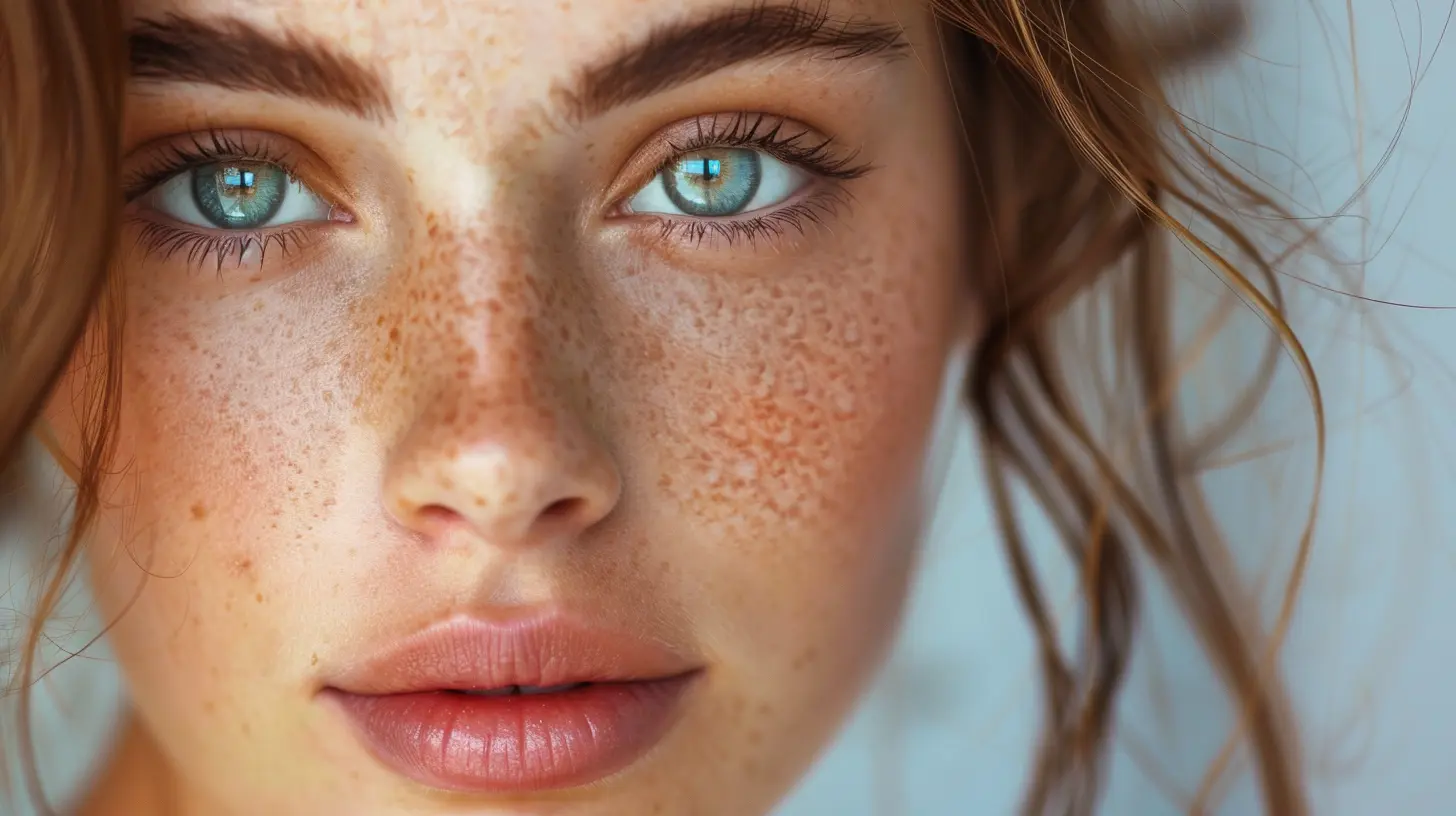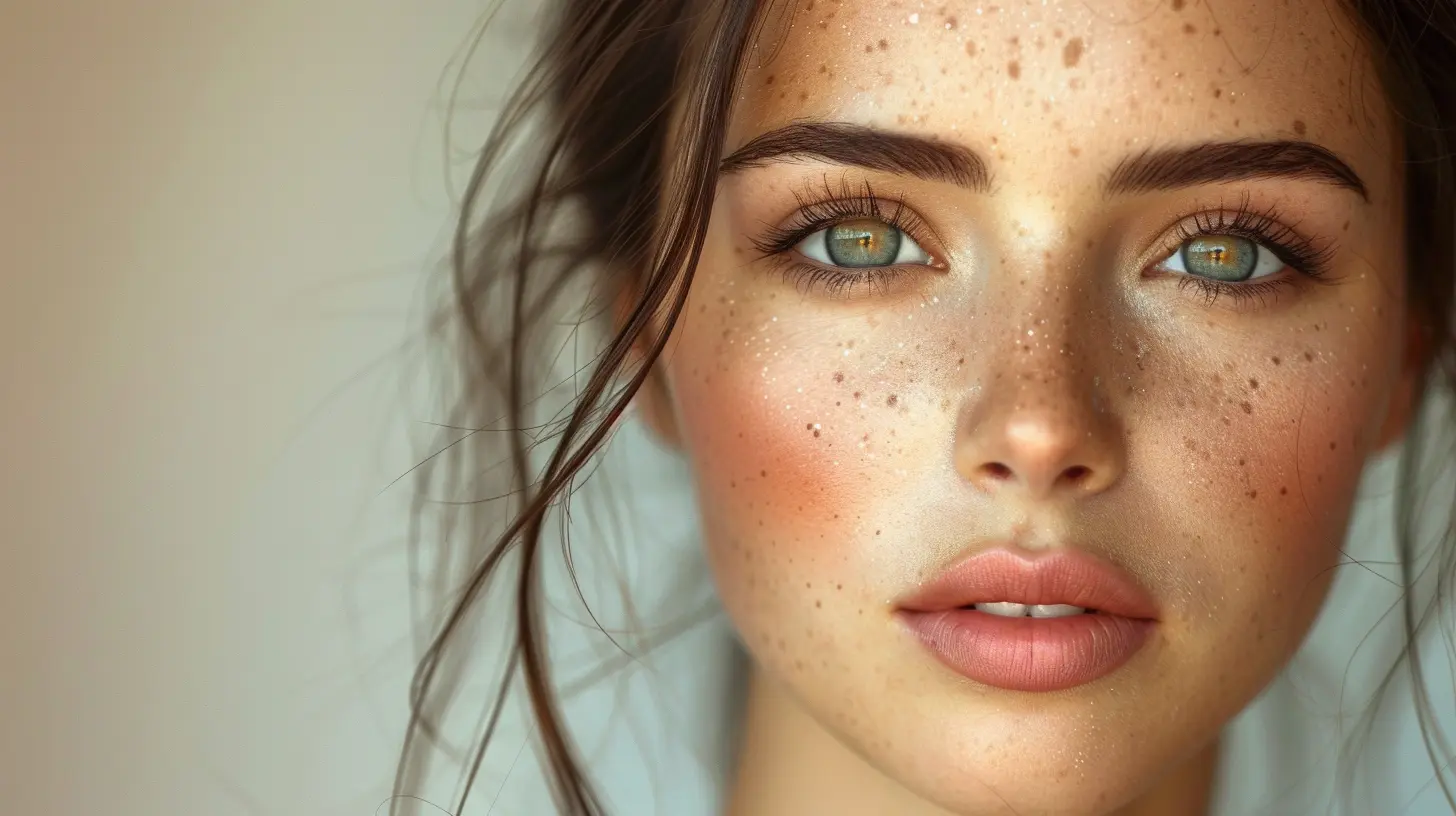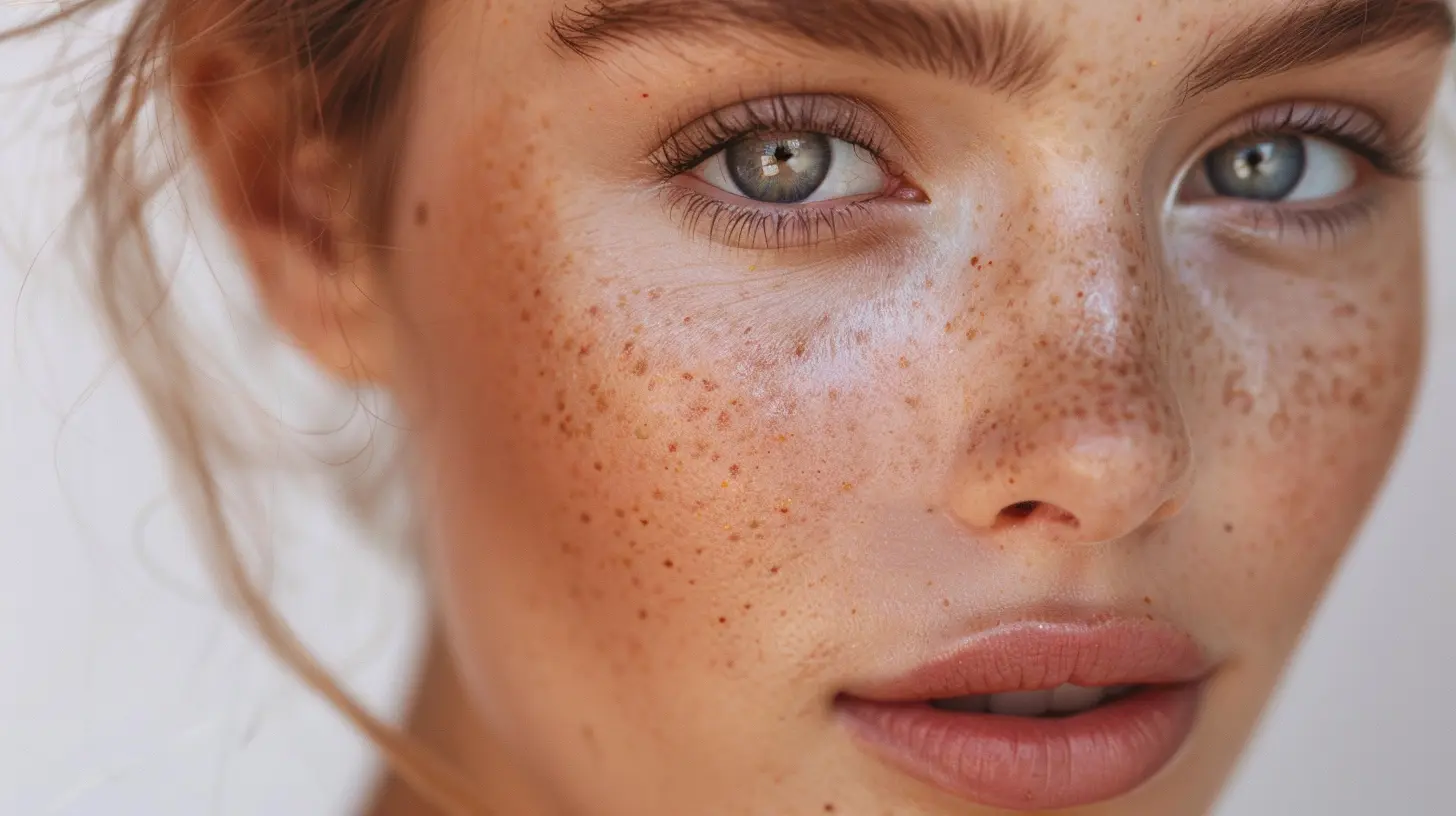How to Choose the Right Moisturizer for Your Skin Type
2 September 2025
Let’s be real—navigating the skincare aisle is no leisurely stroll. There are shelves upon shelves of creams, gels, lotions, and balms promising everything from eternal youth to glass skin. But here’s the kicker: If the moisturizer you've picked doesn’t match your skin type, it could do more harm than good. Yep, even the expensive ones.
Choosing the right moisturizer isn't just about grabbing the fanciest bottle or what your favorite influencer swears by. It’s about tuning into what your skin truly needs. Think of it like picking the right pair of shoes—are you wearing flip-flops for a hike? Nope. Same logic applies here.
In this lengthy (but totally worth it) guide, we’re breaking down how to choose the right moisturizer for your unique skin type. I’ll walk you through everything—no fluff, just clear steps, helpful tips, and a bit of skincare therapy.
Why Moisturizing Matters (Even If Your Skin Feels Fine)
Before we talk about types and textures, let's address the elephant in the room. Why moisturize at all?Moisturizers are the MVP of any skincare routine. They help lock in hydration, protect your skin's barrier, and—check this—can actually regulate oil production. Yep, even oily-skinned folks need to moisturize.
Without enough moisture, your skin can become dull, flaky, inflamed, or overly oily (because your skin tries to overcompensate). It’s a delicate balancing act, and skipping moisturizer is like skipping meals—you’ll feel it later.
Know Your Skin Type First (Like, Really Know It)
Let’s uncover your skin type first. You can’t shop smart if you’re shopping blind, right?Here’s a quick breakdown:
1. Oily Skin
- Shiny or greasy feel (especially on forehead, nose, and chin)- Prone to blackheads and acne
- Enlarged pores
2. Dry Skin
- Tight, rough, or flaky feel- Often itchy or dull-looking
- May have red or irritated patches
3. Combination Skin
- Oily in the T-zone (forehead, nose, chin)- Dry or normal cheeks
- A juggling act of moisture and oil
4. Sensitive Skin
- Easily irritated by products- Redness, itching, or burning
- Needs extra TLC
5. Normal Skin
- Balanced—neither too oily nor too dry- Few imperfections
- Even texture and tone
Not sure where you fall? Wash your face with a gentle cleanser, pat dry, and wait 30 minutes—no products. If it feels tight, you’re dry. If you’re shiny all over, oily. Shiny just on your T-zone? Combo skin. If you don’t notice much at all, you’re one of the lucky ones—normal skin. Irritated? Sensitive, my friend.
What’s in a Moisturizer? Understanding the Basics
Not all moisturizers are created equal. Before you grab that fancy-looking jar, it helps to know what you’re actually putting on your skin.There are three main types of moisturizing agents:
🧴Humectants
These draw water from the air (and deeper in your skin) to the surface. Think of them like magnets for moisture.Examples: Glycerin, Hyaluronic Acid, Urea, Aloe Vera
Best for: All skin types, especially dry or dehydrated skin
🧈Emollients
These smooth out rough skin and fill in cracks. Think of them like the spackle of skincare.Examples: Squalane, Ceramides, Fatty Acids
Best for: Dry, sensitive, or aging skin
🛡️Occlusives
These create a barrier to lock in moisture. Heavy-duty and best used last in your routine.Examples: Petroleum Jelly, Beeswax, Shea Butter
Best for: Very dry or damaged skin
The perfect moisturizer usually combines all three depending on what your skin needs. It’s not one-size-fits-all.
Choosing the Right Moisturizer Based on Your Skin Type
Alright, now that we’ve got the foundation covered (pun intended), let’s match your skin type to the right moisturizer.🌟 For Oily Skin
Yes, you still need moisture! The trick is to pick a lightweight, non-comedogenic (fancy term for “won’t clog pores”) formula.Look for:
- Oil-free or water-based moisturizers
- Gel or gel-cream textures
- Ingredients like Niacinamide (helps control oil), Hyaluronic Acid, or Salicylic Acid
Avoid:
- Heavy creams or balms
- Products with mineral oil or petrolatum
My Pick: A lightweight gel moisturizer with hyaluronic acid. It hydrates without making you look like a greaseball.
🌟 For Dry Skin
You need deep hydration and a strong barrier to keep all that moisture in.Look for:
- Thick creams or ointments
- Ingredients like Ceramides, Glycerin, Shea Butter, or Squalane
- Fragrance-free (dry skin is often sensitive)
Avoid:
- Alcohol-based formulas
- Lightweight gels that evaporate quickly
Pro Tip: Apply while your skin is still slightly damp to trap more moisture.
🌟 For Combination Skin
You’re walking the fine line between dry and oily—fun, right?Look for:
- Oil-free, balancing formulas
- Light creams or gel-creams
- Niacinamide to help regulate oil
Avoid:
- Super heavy creams
- Occlusives in the T-zone (unless you're extremely dry there)
Trick: Spot-moisturize! Heavier on cheeks, lighter on forehead and nose.
🌟 For Sensitive Skin
Your skin’s on high alert. The key is gentle hydration without irritation.Look for:
- Fragrance-free and hypoallergenic products
- Ingredients like Aloe Vera, Colloidal Oatmeal, or Ceramides
- Minimal ingredient lists
Avoid:
- Alcohol, fragrances, essential oils
- Harsh active ingredients like retinoids or strong acids (unless prescribed)
Extra Love: Patch test everything, always!
🌟 For Normal Skin
You’ve got it easy, but don’t get lazy! Keep your skin balanced with simple hydration.Look for:
- Lightweight lotions or creams
- Ceramides, Hyaluronic Acid, and Vitamin E for added glow
Avoid:
- Heavy occlusive that may feel too greasy
Reminder: Consistency is better than complexity.
Other Factors to Consider
Skin type is just one piece of the puzzle. Lifestyle, climate, age, and even your skincare habits matter.💨 Climate
- In winter? You might need a thicker cream.- Hot, humid summer? A gel-based moisturizer works best.
⏰ Time of Day
- Daytime: Go light, opt for SPF-infused moisturizers.- Nighttime: Go richer to repair your skin overnight.
📆 Age
- Mature skin loses elasticity and moisture. Creams with peptides, ceramides, and antioxidants are your BFF.🎨 Skin Concerns
- Acne? Choose non-comedogenic formulas with salicylic acid.- Redness or rosacea? Look for calming agents like green tea, oat extract, or allantoin.
Ingredients to Love (And Some to Skip)
Let’s talk about what’s inside that bottle.❤️ Skin-Loving Ingredients:
- Hyaluronic Acid: Deep hydration without heaviness- Ceramides: Strengthen skin’s barrier
- Niacinamide: Balances oil, brightens skin
- Aloe Vera: Soothes irritation
- Glycerin: Another humectant hero
- Squalane: Lightweight yet super moisturizing
🚫 Ingredients to Avoid (for most folks):
- Alcohol (denatured, not fatty alcohols)- Fragrances and dyes
- Parabens (controversial but many avoid them)
- Essential oils (can irritate sensitive skin)
How to Apply Moisturizer (Yes, There’s a Right Way)
Sounds silly, but hear me out—how you apply moisturizer actually affects how well it works.Quick tips:
1. Apply on damp skin (after cleansing or serum).
2. Use upward strokes—downward pulls can sag skin over time.
3. Don’t overdo it. A pea-sized amount usually does the job.
4. Press, don’t rub. Especially around sensitive areas like under the eyes.
Consistency trumps quantity. Twice a day, every day.
Common Myths About Moisturizers
Let’s bust a few myths while we’re at it:- “Oily skin doesn’t need moisturizer.” False. It just needs the right one.
- “Natural is always better.” Not necessarily. Poison ivy is natural too.
- “Expensive means better.” Nope. Read ingredients, not price tags.
- “If my skin feels tight, it’s working.” That’s actually a red flag for dryness.
Final Thoughts: Moisturizer Magic Starts With Your Skin
So there you have it—a deep dive into choosing the right moisturizer for your skin type. There’s no single miracle product out there, but the right one? It can make all the difference between “meh” skin and glowy, healthy skin that feels as good as it looks.If you're still unsure, patch test, or even better, visit a dermatologist. Skin is personal. What works for me might not work for you—and that’s totally okay.
Bottom line? Your skin deserves a moisturizer that gets it. Treat it like a relationship—it should feel good, not just look good.
all images in this post were generated using AI tools
Category:
Skin CareAuthor:

Angelo McGillivray
Discussion
rate this article
1 comments
Xavier Ross
Selecting the right moisturizer is crucial for skin health. Consider your skin type—oily, dry, or combination—and choose products with appropriate ingredients to ensure optimal hydration and balance.
September 18, 2025 at 2:52 AM

Angelo McGillivray
Thank you for your insight! Choosing a moisturizer that matches your specific skin type is essential for achieving healthy, balanced skin.


